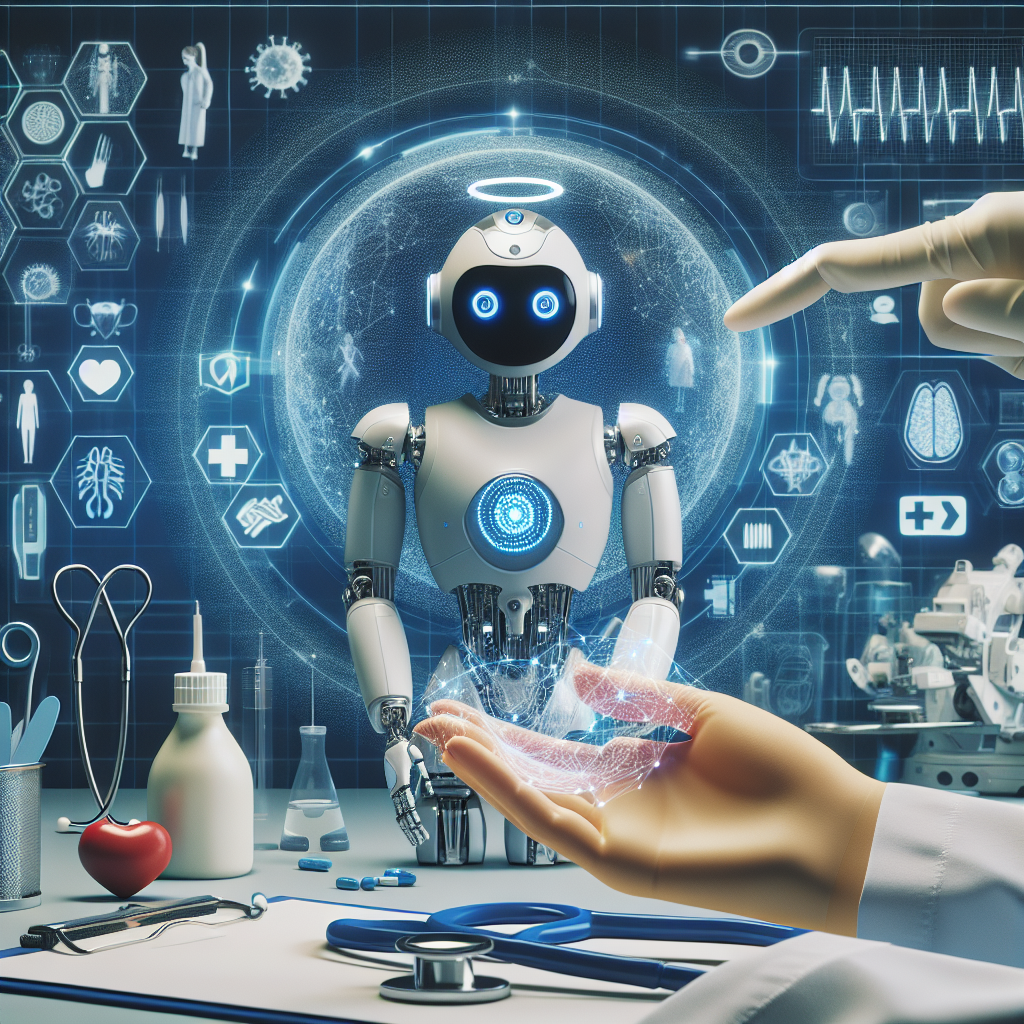With the rapid advancements in artificial intelligence (AI) technology, the integration of AI in healthcare robotics is becoming increasingly prevalent. AI has the potential to revolutionize the healthcare industry by improving efficiency, accuracy, and patient outcomes. From robotic surgery to personalized medicine, AI integration in healthcare robotics is set to transform the way healthcare is delivered in the future.
One of the key areas where AI is making a significant impact in healthcare robotics is in surgical procedures. Robotic surgery, also known as robot-assisted surgery, allows surgeons to perform minimally invasive procedures with greater precision and control. AI-powered robots can analyze real-time data during surgery, providing surgeons with valuable insights and recommendations. This can help reduce the risk of complications and improve patient outcomes.
Another area where AI integration in healthcare robotics is making a difference is in diagnostics. AI-powered robots can analyze medical images, such as X-rays and MRIs, with greater accuracy and speed than human radiologists. This can help healthcare providers make more informed decisions about patient care and treatment options. AI can also be used to analyze patient data, such as genetic information and medical history, to identify patterns and trends that can help personalize treatment plans for individual patients.
In addition to surgical procedures and diagnostics, AI integration in healthcare robotics is also being used for medication management and patient monitoring. AI-powered robots can dispense medications, track patient vitals, and provide real-time feedback to healthcare providers. This can help improve medication adherence, reduce medication errors, and enhance patient safety.
The future of AI integration in healthcare robotics is bright, with the potential to transform the way healthcare is delivered. From robotic surgery to personalized medicine, AI is poised to revolutionize the healthcare industry and improve patient outcomes. However, there are still challenges to overcome, such as regulatory hurdles, data security concerns, and ethical considerations. As AI technology continues to evolve, it will be important for healthcare providers and policymakers to work together to ensure that AI is used responsibly and ethically in healthcare robotics.
FAQs:
Q: What are some of the benefits of AI integration in healthcare robotics?
A: Some of the benefits of AI integration in healthcare robotics include improved efficiency, accuracy, and patient outcomes. AI-powered robots can perform surgical procedures with greater precision, analyze medical images with more accuracy, and personalize treatment plans for individual patients.
Q: Are there any risks or challenges associated with AI integration in healthcare robotics?
A: Some of the risks and challenges associated with AI integration in healthcare robotics include regulatory hurdles, data security concerns, and ethical considerations. It will be important for healthcare providers and policymakers to work together to address these issues and ensure that AI is used responsibly and ethically in healthcare robotics.
Q: How is AI technology evolving in healthcare robotics?
A: AI technology in healthcare robotics is evolving rapidly, with advancements in machine learning, natural language processing, and computer vision. These technologies are being used to improve surgical procedures, diagnostics, medication management, and patient monitoring.
Q: What are some examples of AI-powered robots in healthcare?
A: Some examples of AI-powered robots in healthcare include robotic surgery systems, diagnostic imaging systems, medication dispensing robots, and patient monitoring devices. These robots are designed to improve efficiency, accuracy, and patient outcomes in healthcare settings.

